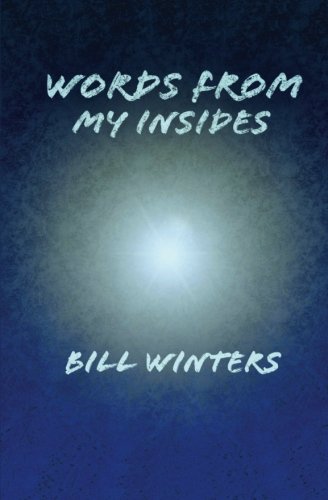How to Become an Inspired Writer
Inspiration!

Look around you!
The easiest way to become inspired is to look around you. I don't literally mean turn your head around in 360 degrees. I mean take a look at what is going on around you - in your personal life, in politics, in sports, in whatever it is that grabs your interest. I tend to write extremely abstract poem about a football with never mentioning what it is, I could do it. Why? Because that's where I find my inspiration - writing in a fashion in which the true meaning may never be revealed to anyone unless they dig deep. When writing, it's very important to make sure that you don't wear your heart on your sleeve. And yes, there's a reason I used that cliche. Don't make your writing a cliche!
The last thing you want is your writing to be bland and lifeless. Use your emotions to help you write. Don't write what's already been written or in a way that it's already been written. Using the football example above, we all know it's brown, made of leather and has white laces. So don't say those things. There's no need to state the obvious, when you have abstraction at your fingertips. Make the reader wonder what you are writing about. Make them think, even if they never can quite make the connection at the end. Sometimes, ignorance really is bliss. The meaning of everything doesn't always need to be apparent. If it did, we would all live our lives with the same purpose - to fulfill the meaning of life. But since we don't know the meaning of life, look at all of the wonderful different personalities that are out there.
That might be a lot to take in at once, but I'll try and break it down a little bit better here:
- Use your own experiences - Take events from your life that made you feel a certain way - sad, happy, angry, anxious, to name a few. These emotions that you stir up will steer your writing towards a more emotional state, rather than stating the obvious.
- Relax - This one is important. There's nothing worse than forcing yourself to write. If you do that, nothing will ever be good enough, and that's a promise. You'll always second guess yourself. So do what it takes to relax yourself.
- Light and dark - What does that mean? Two words - mood lighting. We've all heard of it and know what it is. If you're writing something a little darker and macabre, then sit in the dark and put on music that brings out that side of you. If you're writing something light and happy, then open a window or turn the lights up and put on some upbeat music.
From my personal experience, I write very dark (in my eyes) material. It's a reflection of where I've been and what I've seen, and not necessarily a reflection of who I am as a person. When we see movies about violence and killing, we don't assume that the person who wrote the movie is a murderer or a violent person do we? No, and the same goes for writing. Just because you write about something, it doesn't paint you into a corner or even paint a picture of who you are. We all have dark recesses of our minds and we all have our own 'happy places' if you will. Find them. Use these places in your mind to write from. Don't sit down and expect magic to happen. Writing effectively takes work, and if done correctly it should take a toll on the writer as well.
Practice, practice, practice
In order to be a writer who is capable of writing about multiple subjects in a variety of ways, pick random objects around you or random events that you see on television, and try writing about them. See how that works out for you. If you can write about a striking poem about your favorite show on TV, then you can probably write a successful poem about just about anything.
For me, poetry is about turning the mundane into the magical, if you will. Not everyone will feel the same magic, but like the saying goes - if you've done enough to touch one person's life then you've done a lot. Hopefully someone out there has read some of what I've published so far and it's had some sort of impact on them. I'm not saying that you should try and be a super hero with your writing, but remember that if you are going to publish it, you probably want to stir emotion in someone else, as well as yourself. That is, after all, why everyone reads right? To learn and to discover new things, to feel new things.
Like I said, practice makes perfect. If you can get someone to critically think about an object as mundane as a pear or an animal then there is a good chance that you will be able to do the same for more meaningful topics. With each piece that you write, learn from it. Take what you've learned from that writing and apply it to your next one. My computer is full of junk I have written but will never see the light of day because it doesn't meet my standards, or I just don't like it. But I have learned from each of those and have been able to put out some work I'm mildly proud of. I'm still learning, and I know I'm far from perfect. Don't expect perfection on your first time or your hundredth time. Just continue learning about yourself, your writing style and how you perceive the world around you. Those things alone will help you become more successful at writing.
One of my books









